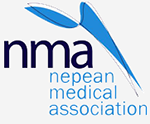2018
Duration: 4 Dec 2017 to 2 March 2018
Location: South Africa
Hospitals and Departments: Edendale Hospital Emergency Department (KwaZulu-Natal) and Tygerberg Hospital Department of Orthopaedic Surgery (Cape Town)
Sawabona my dear friends and medical colleagues. If you’re looking for an elective placement that will challenge you personally and professionally then South Africa (SA) is the place for you. This destination will offer opportunities to engage in a field of medicine that is seldom seen in Australia, i.e. trauma, and will allow you to hone many of the procedural skills that medical students in Australian generally do not get enough practice doing.
Large hospitals in major cities (Cape Town, Johannesburg) such as Tygerberg, Groote Schuur and Chris Hani Baragwanath hospital receive an endless amount of trauma stemming from motor vehicle accidents, community assaults, gang violence and criminal activity. Smaller district hospitals too, such as Edendale hospital in KwaZulu-Natal should not be overlooked as they are usually the first line of medical attention for these patients. An endless amount of gunshot wounds, stab lacerations, pneumo and haemothoraces, fractures and head injuries create a constant stream of work for medical staff and students. You can be sure to have an extensive number of suturing cases, cannula (or as they call it in SA Jelcos) and vascular work, endotracheal tube placements, intercostal drain insertions, and opportunities to learn skills such as lumbar punctures, regional anaesthesia and ultrasound (e.g. eFAST scan) techniques.
Beyond the fields of emergency medicine and trauma surgery, the hospitals are also well-equipped to deal with medical and surgical specialties of every variety as well.
Important practical advice regarding a placement in SA include the following:
- Do your research and read student reviews on electives.net. This is an incredible source of information for electives all over the world.
- Be persistent in your applications and enquiries, South African hospital administration tends to be slow to respond. You may have to make an international call from time to time.
- Be adventurous and apply to non-major cities and towns. There tends to be more work for elective students there considering the relative shortage of doctors combined with the fact that there are less elective students.
- While this destination is purported to be very dangerous (which it can be), if you have your wits about you and talk to locals/previous travelers it is easy to stay out of harm’s way.
- It is common to be given A LOT of autonomy in clinical situations (relative to Australia). Be wise and recognise your limits regarding what you feel capable of doing. Be proactive in learning practical skills but make sure you have appropriate supervision when you do so. Do not put the patient or yourself in harm’s way.
- Hire a rental-car, it is inexpensive and will greatly increase your mobility and enjoyment of the placement. Public transport has a reputation of being dangerous for foreigners.
- Be cautious of needle sticks (SA has the highest rates of HIV infection in the world). Bring a pair goggles to prevent eye-splashes and be weary of patients with active TB (wear a mask if you have to assess a patient in significant respiratory distress and who is TB positive).
- Most if not all consults should be in English, but learn some of the local lingo (depending which province you are in) such as Zulu, Xhosa, Ndebele or Afrikaans. This will greatly enhance your experience as patients and nurses will love you for trying.
- Make lots of friends with the local students and get invited to Digs, Lekker Jols and Braais.
- Lastly, go with a very open mind, you will be surprised at what you will learn and do while you are there. Hamba Kahle!





